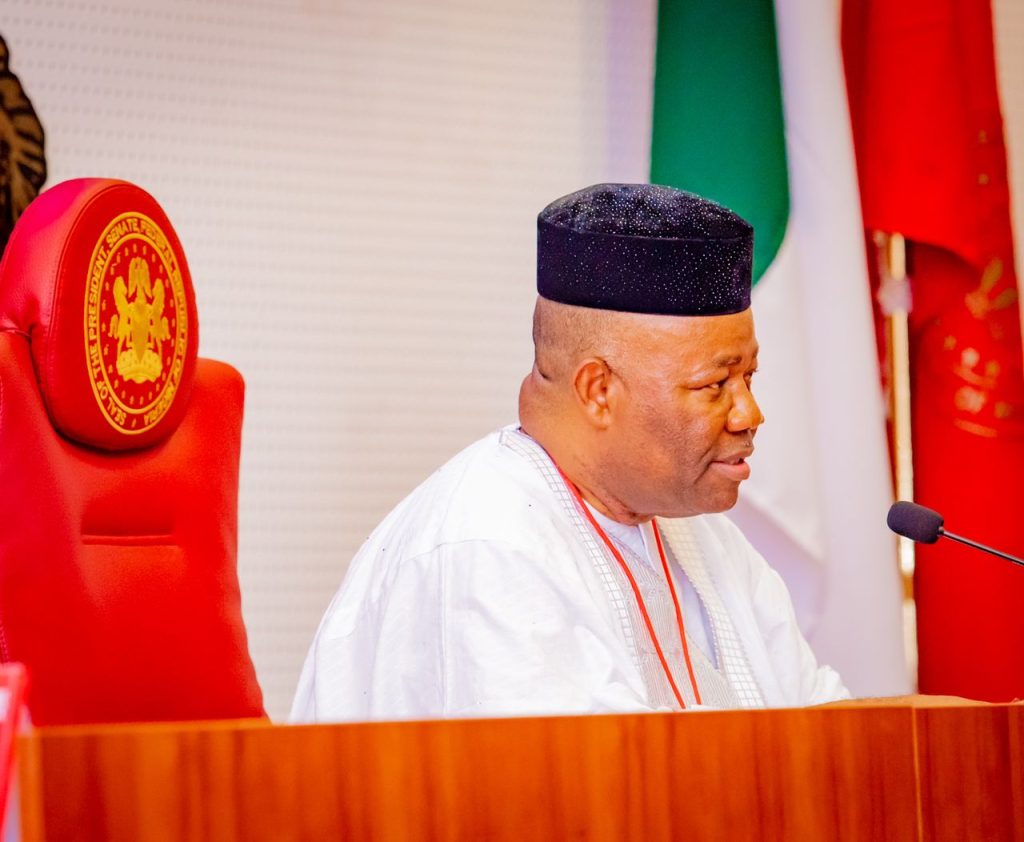The Nigerian Senate, under the leadership of Senate President Godswill Akpabio, is on the cusp of a critical juncture in its legislative calendar: the consideration and potential passage of the 2025 budget proposal. Akpabio, addressing the Senate during plenary on Tuesday, indicated the strong likelihood of the Appropriations Committee presenting its report on the N54.2 trillion budget estimate as early as Wednesday or Thursday of the same week. He emphasized the importance of this legislative action, noting that senators might commence deliberations on the budget immediately following its presentation. The Senate President acknowledged the noticeably sparse attendance at the Tuesday plenary, attributing it to the Appropriations Committee members’ engagement in finalizing the budget document to ensure it aligns with the nation’s interests. This underscores the urgency and significance attached to the budget process, highlighting the Senate’s commitment to thorough review and timely action.
The context of Akpabio’s remarks stems from discussions surrounding a bill proposing the establishment of the Federal University of Agriculture in Abak, Akwa Ibom State. Recognizing the looming deadline for the budget’s passage, the Senate President urged his colleagues to expedite their deliberations on the university bill, allowing them to shift their focus to the more pressing matter of the 2025 appropriation. This underscores the Senate’s dedication to efficient legislative processes, prioritizing the nation’s fiscal plan while still addressing other important legislative matters. Akpabio’s call for prompt conclusion of the university bill debate highlights the time-sensitive nature of the budget process and the need to dedicate sufficient time and attention to its meticulous review and subsequent passage.
Originally, the Senate and the House of Representatives had targeted January 31, 2025, as the deadline for passing the President’s initially proposed N49.7 trillion budget. However, unforeseen circumstances led to the postponement of both chambers’ resumption from the Christmas and New Year recess from January 31 to February 4, 2025. This delay introduced a new layer of complexity to the budget timeline, requiring adjustments to ensure timely passage. Upon resumption, the legislature was met with a communication from President Bola Tinubu, revising the initial budget proposal upwards to N54.2 trillion. This significant increase necessitated a re-evaluation of the budget by the relevant committees, further emphasizing the importance of their current deliberations.
The President’s revised budget figure represents a substantial N4.5 trillion increase from the original proposal, prompting both Akpabio and House Speaker Tajudeen Abbas to acknowledge the need for a thorough review of the adjusted estimates. This increase necessitates adjustments to the budget’s allocations and projections, underscoring the meticulous work being undertaken by the Appropriations Committee. Following the President’s communication, Akpabio urged the Senate Appropriations Committee to expedite their work on the revised proposal, aiming to secure its passage before the end of February. This directive highlights the Senate’s commitment to adhering to a revised timeline despite the unexpected increase in the proposed budget.
The urgency surrounding the 2025 budget stems from its crucial role in shaping the nation’s economic trajectory for the upcoming fiscal year. The budget outlines the government’s planned expenditures and revenue projections, serving as a roadmap for its economic policies and priorities. A timely passage of the budget ensures the smooth implementation of government programs and projects, providing much-needed stability and predictability for the economy. Furthermore, delays in budget passage can lead to uncertainty and disruptions in government operations, potentially impacting the delivery of essential services and hindering economic growth.
The Senate’s commitment to a thorough review and timely passage of the 2025 budget underscores its dedication to responsible governance and fiscal prudence. The careful scrutiny of the revised budget proposal, along with the efforts to ensure its alignment with national interests, reflects the Senate’s commitment to its constitutional role in overseeing government spending. The anticipated presentation of the Appropriations Committee’s report and the subsequent deliberations by the full Senate represent a crucial step in the budget process, setting the stage for the final passage and implementation of the nation’s fiscal plan for 2025. The Senate’s actions in the coming days will significantly impact the country’s economic outlook and the well-being of its citizens.


